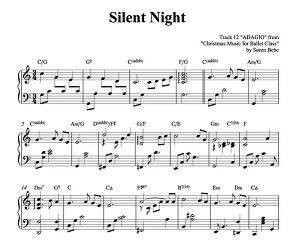This is mark Joseph “young” blog entry #396, on the subject of Why Music Matters.
In a private group on Facebook, the Christian Music Network, someone named Esther Waraa asked this question: Why is music important in praising the Lord? I immediately decided this was a topic worth exploring, and I had already been saying that I needed a web log post this week, so here goes my exploration.
First, a few credentials and caveats.
I spent five years in Contemporary Christian Radio, but probably before most of you and many of today’s artists were born. From that I have been publishing a series about the artists who were at the roots of the Christian Contemporary/Rock Music world, the most recent of these articles post #391: Pat Terry, with links to forty-two previous articles going back to people like Larry Norman and Ralph Carmichael. I have also been a musician all my life (my kindergarten teacher called me her little songbird), and have begun publishing some of my compositions, the most recent #393: The Song “Why”, again with links reaching back to twenty-three previously released songs. I know something about music and particularly about Christian music.
The caveat, though, is that I consider the act of leading worship to be pastoral ministry, leading believers to intimacy with God. I am not a pastor; I am a teacher. I have written extensively about that previously, a nine-part series culminating in #107: Miscellaneous Music Ministries which explains how music might be used in various ministry callings. It also addresses the modern error that music is always specifically for worship, partly by contrasting it to the error of a previous generation, that music was always specifically for evangelism. Indeed, music is for worship, but it’s also for evangelism, teaching, and other ministry functions–and sometimes it’s just for entertainment. The question, though, specifically asked about “praising the Lord”, and thus is about pastoral ministry and worship music.
I am starting in an unlikely place–indeed, when I started thinking about this article I thought I would put this at the end, but the more I considered it the more I thought this really was a primary reason, if not the primary reason. When we are told in Genesis that God made man in God’s image, up to that point about the only thing we had been told about God was that God created. He spoke His creations into existence. Thus the image of God in man is not that we have arms and legs, nor indeed that we have thought and speech and feelings, but ultimately that, like Him, we create. Creation, usually in the form of artistic or artisinal expression, is the ultimate expression of the image of God in us, and as such is fundamentally glorifying to God. Thus when we create music we reveal the divine, and when we use that creation to point to the divine we intensify that aspect.
The second point I am going to propose is that music is engaging. In theory, you can praise God simply by thinking positive thoughts about Him, but you become more involved in that praise if you speak it aloud. Put it in a poetic form, something with meter, rhyme, alliteration, and it becomes more engaging yet. Give it a melody, and you become more involved. Instrumental support, harmonies, other singers, all of this draws the worshipper into the worship. In a very real sense, your worship is more focused, more intense, when it is sung to an accompaniment.
That suggests another point: music encourages mutuality. There is certainly nothing lacking in the glory to God when a hundred people in a room are each individually praising Him, each in his own words and his own way. However, get that crowd singing the same words to the same music, and suddenly you have a unity, united voices all raising the same praise to God together. Just as there is power when we agree in prayer, there is power when we agree in praise, and music facilitates that agreement powerfully.
I’m working my way down a list here, but the next point is not insignificant: music is interesting. I was a child in what might be termed “light liturgical” churches–people joining in a call to worship, perhaps a responsive reading, an invocation terminating in the Lord’s Prayer, a closing benediction. I could sleep in those services, probably still today. That’s not to denigrate the liturgy; for some people it is a great aid to worship. However, the interesting points really were when we all sang the Doxology, the Gloria Patri, the several hymns. Music held my attention then, and that matters. People can easily be lulled into inattention with long prayers and praises, but even if someone else is doing the singing, music is usually interesting.
Finally, I think, music is memorable. I touch on this in the series on music in ministry previously linked, but the point is that you can close a service with everyone repeating the Aaronic Benediction together, but if instead you close it with everyone singing a worship song, a significant number of people are going to walk out of there still singing their praise to God. It might even pop back into their head later in the week. People complain about what are called “earwigs”, that is, songs that get stuck in your head. What, though, if the song stuck in your head is glorifying God? Singing our praise now means we are likely to wind up doing so again later.
Thank you, Esther, for the question. I hope this has been helpful.
